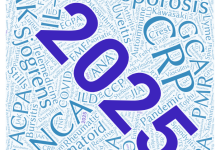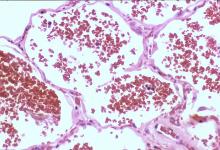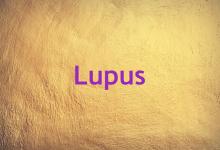High Level Rheumatoid Responses to the GM-CSF inhibitor Mavrilimumab Save

Despite recent advances in treatment of rheumatoid arthritis (RA), MANY patients on existent biological therapy fail to achieve remission. Therapies with novel mechanisms of actions, great efficacy and well balanced safety profile remain an unmet need.
A novel therapeutic agent targeting granulocyte–macrophage colony-stimulating factor (GM−CSF) managed to attract attention recently. GM-CSF, an effector T helper 1/17 cell cytokine and a key player in differentiation and survival of macrophages, dendritic cells and neutrophils, detected in high concentration in synovial fluid of patients with RA. Moreover, recombinant GM−CSF administration has been shown to exacerbate RA disease activity in recent studies.
Mavrilimumab, a fully human monoclonal antibody which blocks the GM−CSF receptor, is the first biologic in clinical development to target this pathway.
In this 24-week phase IIb study, the therapeutic potential of GM−CSF antagonism in combination with Methotrexate in patients with moderate-to-severe, adult-onset RA was evaluated in comparison with placebo.
Patient were assigned 50, 100 or 30 mg subcutaneous mavrilimumab or placebo eow in combination with stable dosages of MTX (7.5–25.0 mg/week) for 24 weeks. Primary endpoints in this study were change from baseline in DAS28−CRP score at week 12 and American College of Rheumatology (ACR) 20 response at week 24.
Of 305 patients who completed the study, significantly more patients receiving mavrilimumab 150 mg eow achieved an ACR20 response compared with placebo, with a dosage-dependent response (150 mg: 73.4%; 100 mg: 61.2%; 30 mg: 50.6%; placebo: 24.7% (p<0.001).
Mavrilimumab significantly reduced DAS28−CRP scores from baseline compared with placebo at week 12 in all dosages. Subgroup analysis revealed that mavrilimumab was effective in both sero-positive and sero-negative patients.
In terms of safety, AEs leading to discontinuation of treatment reported for two (2.5%), five (5.9%), four (4.9%) and one (1.2%) patients in the mavrilimumab 150, 100, 30 mg eow and placebo groups, respectively.Bon t only two (pneumonia and angioedema) were considered treatment related.
No clinically meaningful differences between mavrilimumab-treated and placebo-treated patients in haematology, including neutrophils, serum chemistry and urinalysis parameters, were observed.
This proof-of-concept study confirms statistically significant clinical response to the GM−CSF inhibitor, mavrilimumab, in patients with RA, including those who do not adequately respond to currently available therapies.










If you are a health practitioner, you may Login/Register to comment.
Due to the nature of these comment forums, only health practitioners are allowed to comment at this time.